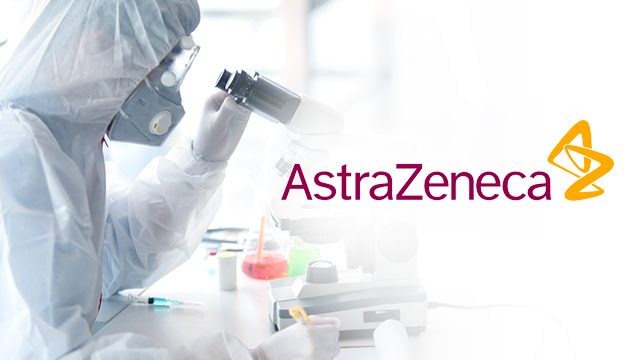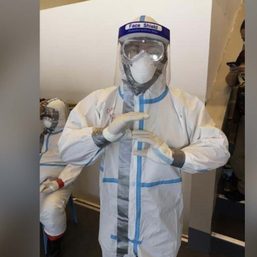SUMMARY
This is AI generated summarization, which may have errors. For context, always refer to the full article.

LONDON, United Kingdom – British pharmaceuticals group AstraZeneca on Thursday, May 21, said it had secured more than $1 billion from the United States to help fund production of its coronavirus vaccine.
AstraZeneca is partnering with University of Oxford to develop and distribute a vaccine being trialed in the UK.
It comes amid concerns that the United States – which has the world’s highest official death rate from COVID-19 – could have a vaccine before other countries thanks to its large-scale funding of multinational pharmaceutical companies.
France has slammed Paris-based drugs giant Sanofi for suggesting the US would receive its vaccine first, as world leaders demand that the science should be shared among nations.
AstraZeneca said it had “received support of more than $1 billion from the US Biomedical Advanced Research and Development Authority for the development, production and delivery of the vaccine.”
The company, however, added it was in contact with governments and international health institutions to ensure the vaccine is available globally.
AstraZeneca said it had concluded deals for the first 400 million doses of the vaccine – and has manufacturing capacity for one billion doses, with it hoping to begin deliveries in September.
‘Accessible globally’
“AstraZeneca is advancing its ongoing response to address the unprecedented challenges of COVID-19, collaborating with a number of countries and multilateral organizations to make the University of Oxford’s vaccine widely accessible around the world in an equitable manner,” a statement said.
The company added it was “engaging with international organizations,” including the World Health Organization, “for the fair allocation and distribution of the vaccine around the world.”
“AstraZeneca is also in discussions with governments around the world to increase access.”
Britain this week pledged £84 million ($103 million, 93 million euros) to be split between researchers at Oxford University and Imperial College London to help finance a COVID-19 vaccine.
The UK government had already given £47 million.
Human trials of the vaccine developed by Oxford’s Jenner Institute began last month, with hundreds of people in Britain volunteering to be part of the study.
The COVID-19 pandemic has killed more than 325,000 people worldwide, three-quarters of them in Europe and the United States, since breaking out in China last December.
More than 5 million have been infected globally by the pandemic, sparking a rush by pharmaceutical companies across the world to try to develop treatments and vaccines.
“This pandemic is a global tragedy and it is a challenge for all of humanity,” AstraZeneca chief executive Pascal Soriot said in Thursday’s statement.
“We need to defeat the virus together or it will continue to inflict huge personal suffering and leave long-lasting economic and social scars in every country around the world.”
‘Substantial US, UK support’
Soriot expressed pride at collaborating with Oxford “to turn their ground-breaking work into a medicine that can be produced on a global scale.”
He meanwhile thanked “the US and UK governments for their substantial support to accelerate the development and production of the vaccine.”
Initially named ChAdOx1 nCoV-19, the vaccine is now known as AZD1222.
“A Phase I/II clinical trial of AZD1222 began last month to assess safety, immunogenicity and efficacy in over 1,000 healthy volunteers aged 18 to 55 years across several trial centers in southern England,” AstraZeneca said Thursday.
“Data from the trial is expected shortly which, if positive, would lead to late-stage trials in a number of countries.
“AstraZeneca recognises that the vaccine may not work but is committed to progressing the clinical program with speed and scaling up manufacturing at risk,” the statement added. – Rappler.com
Add a comment
How does this make you feel?


There are no comments yet. Add your comment to start the conversation.